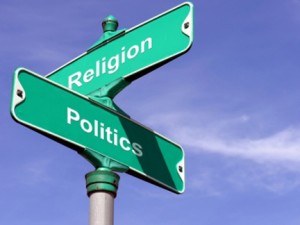 The orthodontist’s new office has a waiting room tricked out with video games—even a genuine old tabletop Mrs. Pac-Man. Grace and I were racing cars—and she was winning by more than a lap—when the woman in purple scrubs called her name.
The orthodontist’s new office has a waiting room tricked out with video games—even a genuine old tabletop Mrs. Pac-Man. Grace and I were racing cars—and she was winning by more than a lap—when the woman in purple scrubs called her name.
“Hey Grace,” she drawled, as Grace approached her. She had frosty blond hair and friendly blue eyes, and cool running shoes under those purple scrubs, rocking the hip-grandma look. She swung her arm in a wide come-on wave and said, “You’re coming too, Mom and Dad.”
Later, when Gracie’s mother complimented her on how easy she makes her job look, she said, “I’ve been doing this for forty-five years.” She joked and teased in just the right ways to put Grace at ease as she lay back and opened her mouth for the light stretching on its long arm toward her.
After the orthodontist examined her and discussed the braces—and oral surgery—our hip grandma was back with the pricing sheet. She was just as good at this part, had the numbers written neatly, the math done, clear and simple. She said, “You have good insurance. Insurance usually doesn’t cover this much.”
Gracie’s mother and I both said this was great news, good to hear.
Then she added, “And they never will again now, because of Obamacare.” As she emphasized the O word, her pretty smile curled into a crisp sneer. Then just as quickly, it was gone and she had moved on to the next line of numbers.
I was not surprised by the political interjection. Nor was I surprised when, describing a new doctor on staff, she said, “We are so blessed to have him.” I was on the conservative side of town. On the other side of town, we would have been just as likely to hear a comment from the opposite side of the Affordable Care Act controversy—just as opinionated, and just as inappropriate for the circumstances.
My town has two distinct personalities: one side is die-hard right wing conservative and the other side is just as staunchly on the left. I have watched these two sides do battle in a bumper sticker war. The Darwin fish (an ichthus with feet) popped up to counter the Jesus fish; another ichthus came along with the Jesus fish swallowing the Darwin fish food-chain style. Slogans are volleyed back and forth: equal rights for unborn women, and keep your theology off my biology; God bless America, and God bless the whole world, no exceptions; marriage God’s design (a silhouette of a man, a plus sign, and a silhouette of a woman), and the blue and yellow equal sign.
As I teach on one side of town and then the other, I often find myself in the company of conservative Christians who cannot fathom how someone calling herself Christian could be liberal, and hours later in the company of liberals who boggle over how someone claiming to follow Jesus could be conservative. Over the past several years, I have watched these responses turn from wonder to animosity. Wherever you fall on the spectrum, surely you agree that the increasing polarization is troubling.
In his book The Righteous Mind: Why Good People Are Divided by Politics and Religion, Jonathan Haidt shares a wealth of research on this issue. He uses the word righteous not with its current connotations of religion and judgmentalism, but from the original “just, upright, virtuous.” As ugly as the rhetoric is becoming, it is a fact that many on both sides are doing what they sincerely believe to be upright and virtuous.
Haidt begins with the question, “How can honest and sincere people come to opposite conclusions?” His research maps out the moral foundation of politics, which he places in six basic categories: care/harm, fairness/cheating, loyalty/betrayal, authority/subversion, sanctity/degradation, liberty/oppression. What he discovers is that consistently liberals have a three-foundation morality (care, fairness, liberty) while conservatives have a six-foundation morality (care, fairness, loyalty, authority, sanctity, liberty).
This leads to competing grand narratives. While liberals tell a story of progress toward a more caring and fair society, conservatives tell a story of defending moral foundations against forces that ever work to erode them. These appear to be—and in the realm of politics are—opposing narratives.
The truth is however that both sides make legitimate and correct claims. Our society operates within what Haidt calls a “moral exoskeleton,” a set of values that makes a society possible. Liberals rightly claim this moral exoskeleton is imperfect, needs fixing. Conservatives rightly maintain that it will not do to bring the whole thing crashing down. “You can’t help the bees by destroying the hive.”
Haidt offers a couple of suggestions for reaching a more civil politics, which might or might not work, but does not spend much time on them. His purpose for the book is simply to explain how good people can reach such differing opinions about important issues.
Could it be that the first necessary step is to admit that, whatever side you are on, you can get nowhere without faith that the other side is also “composed of good people who have something important to say”? Is it naive to believe it is possible?
Vic Sizemore earned his MFA in fiction from Seattle Pacific University in 2009. His short stories are published or forthcoming in StoryQuarterly, Southern Humanities Review, Connecticut Review, Portland Review, Blue Mesa Review, Sou’wester, Silk Road Review, Atticus Review, PANK Magazine Fiction Fix, Vol.1 Brooklyn, Conclave, and elsewhere. Excerpts from his novel The Calling are published in Connecticut Review, Portland Review, Prick of the Spindle, Burrow Press Review, Rock & Sling, and Relief. His fiction has won the New Millennium Writings Award for Fiction, and been nominated for Best American Nonrequired Reading and a Pushcart Prize. You can find Vic athttp://vicsizemore.wordpress.com/.











